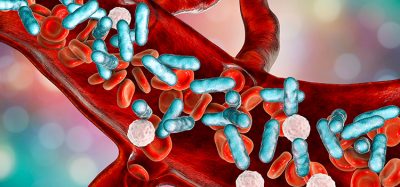Precise genetic cause of rare hypertension syndrome is discovered
Posted: 6 February 2018 | Drug Target Review | No comments yet
Scientists at the Berlin Institute of Health have discovered how mutations in a new disease gene CLCN2 cause the unusual inherited form of high blood pressure: Familial hyperaldosteronism type II.


More than a billion people worldwide suffer from high blood pressure , or hypertension. Prolonged hypertension damages blood vessels, which can result in damage to the heart, kidneys and brain. This in turn can lead to fatal conditions such as heart attacks, kidney failure, and strokes.
What causes hypertension?
Besides obesity, salt consumption and alcohol intake, genetic factors also have a significant impact on the development of hypertension and in some rare cases, familial hypertension is caused by mutations within single genes. Such genes play an important role in blood pressure determination, with mutations typically causing early-onset hypertension, even in young children and adolescents.
However, recent developments have taken place in this area with Ute Scholl and a team of scientists from the United States and Australia having identified a new hypertension disease gene. Their study focused on a very rare form of high blood pressure, known as familial hyperaldosteronism type II. This inherited disease causes the adrenal gland to produce too much aldosterone – a hormone that regulates the body’s levels of salt and water by means of kidney function. Too much of this hormone results in high blood pressure.
Mutation in the CLCN2 gene alters blood pressure regulation
Familial hyperaldosteronism type II was first described in an Australian family 25 years ago. The research team investigated this family along with other patients suffering from hyperaldosteronism in childhood and adolescence. A total of eight families, including the large Australian family, showed mutations in a gene that had not previously been associated with blood pressure regulation. The CLCN2 gene carries information for building a channel in the cell membrane through which chloride ions can pass. In specific cells of the adrenal gland, these chloride channels regulate membrane voltage and aldosterone production. Gene mutations in patients with familial hyperaldosteronism cause changes in the membrane voltage and result in the overproduction of aldosterone, which raises blood pressure.
Findings to enable early detection and treatment
Commenting on the anticipated application of their findings, Ute Scholl, lead author of the study, said: “Patients with suspected familial hyperaldosteronism and their relatives will benefit from our findings because in the future they can be screened for mutations in the CLCN2 gene.”
Study patients also responded to medication that is already used in the treatment of hyperaldosteronism. “For families with familial hyperaldosteronism type II, identifying the genetic cause doesn’t just help with early detection of the disease, it also enables targeted treatment,” says Scholl.
As BIH Johanna Quandt Professor, Ute Scholl and her research group will now use the results from the study to delve deeper into their research at the Berlin Institute of Health. “We plan to further investigate the role of chloride channels in the adrenal gland,” says Scholl. “We also try to better understand the regulation of these channels in order to develop improved treatment strategies.”
Related topics
Disease Research, Genetic Analysis
Related conditions
Familial hyperaldosteronism type II
Related organisations
Berlin Institute of Health (BIH)
Related people
Ute Scholl - Berlin Institute of Health







